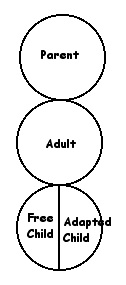I was reading a book on counselling the other day and it discussed the therapeutic alliance. These two guys had done a meta analysis of the literature on what are ‘important therapist attributes’ for the development of a strong therapeutic alliance. They came up with:
Therapist attributes - flexible, honest, respectful, trustworthy, warm, confident, interested and open.
This seems like a reasonable list and includes some of the things one would expect to find. But this is indeed an elusive and indefinable topic. The quality that allows a good therapeutic alliance to develop between client and therapist. I have discussed this before and talked about the ‘x’ factor.

This is usually mentioned in relation to singers and musicians. There is a quality that the very good ones have that the not so good ones do not have. What that is however is largely indefinable, but you know when it is there and when it is not. A bit of an odd situation really - you know when it is there but you can’t define it (easily).
The same applies for the the therapeutic relationship. Some therapists have a ‘presence’ where they can have that special connection with clients, but what that is, is hard to define.
The list above is good and accurate but it’s one dimensional. It is a list of things and this will not define the ‘x’ factor. One cannot produce a list of things to do that. Instead one has to talk in more general terms that are less concrete because the ‘x’ factor itself in not concrete.
Theoretically it is quite easy to explain, it can be called the Free Child. This is best explained by looking at the training of therapists.

When therapists begin their trade they learn lots of things like how to do therapy and how to be a therapist. They learn the basic techniques and the basic process to follow. As they master these they become a therapist which undoubtedly is a positive thing. However it is an adaption and thus forms part of the Adapted Child ego state. They learn to be a certain way and a kind of professional role or way to be. They adapt to what authority is teaching them. The down side of this is they loose a sense of who they are and how to be themselves in the therapy setting. They are moving away from their Free Child part of the personality and becoming something else - an adaption.
This is not conducive to forming a connection with the client. The client will feel a sense of connection when the therapist simply be’s who they are. When they be them self which theoretically is the Free Child.
When client’s see the highly trained therapist they get good therapy that is of much assistance but that extra bit is not there. They do not get to meet the therapist as a person.

Some therapists never move beyond this because either they don’t particularly want to or they are not prepared to take the personal risk in doing so. To put the Free Child out in any relationship is a risk including the therapeutic relationship.
To move beyond ‘just’ being a therapist the person has to kind of unlearn what they have just spent the last few ( or many) years learning. They have to unlearn being a therapist and learn again how to be them self as a person in the therapy setting. If they achieve this then the Free Child again becomes accessible to the client and thus a special sense of connection can again occur. In my view this is part of the ‘x’ factor in the therapy setting.
The therapist moves away from being a therapist and becomes a person who happens to do therapy in the relationship with the client. The person comes first and the therapist part comes second. They have already acquired the therapy skills and now they relate to the client and happen to use those skills when necessary.
If the therapist allows self simply to be who they are in the therapy relationship then in my view the client experiences an extra dimension to the therapeutic relationship.

Just being who we are is surprisingly difficult. Most in childhood loose that ability.
Allowing self to just be who you are sounds simple, but is not easy. Indeed I would say that most people loose this after childhood and never achieve it again in adulthood, let alone those who have it trained out of them as happens in the training of therapists.
Graffiti
I have lots of ideas about how people can learn to be themselves through the training of therapists. Letting people take their own time would probably do it. I don't imagine any of the trainers are likely to make the changes though.
ReplyDeleteAs to the therapeutic alliance. I don't think anyone has advanced on Carl Roger's - transparency, congruence and unconditional positive regard (he's usually unfairly ignored I think).
Yes Evan,
ReplyDeleteRogers did make a most profound contribution. I am very much a fan of his.
When I say being self it is more of a state of mind than just doing something. To again achieve that child like state that was to some degree unemcumbered by 'messages' on how to be.
On the other hand this can be a dangerous state of mind especially for a therapist because one becomes less socialized which of course can have negative consequences in a relationship.
Tony
I also thought of Carl Rogers when I read this. What did he say? Something like every person's goal should be to be the person who they truly are.
ReplyDelete